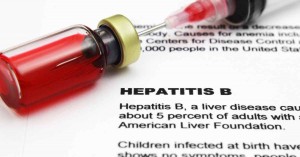 A new study on the association between hepatitis B vaccination (HBVv), fibromyalgia and chronic fatigue entitled “Chronic fatigue syndrome and fibromyalgia following immunization with the hepatitis B vaccine: another angle of the ‘autoimmune (auto-inflammatory) syndrome induced by adjuvants’ (ASIA)” was published in the journal Immunologic Research by Dr. Nancy Agmon-Levin part of Dr. Y. Shoenfeld’s group at The Zabludowicz Center for Autoimmune Diseases, Chaim Sheba Medical Center, Israel, and colleagues.
A new study on the association between hepatitis B vaccination (HBVv), fibromyalgia and chronic fatigue entitled “Chronic fatigue syndrome and fibromyalgia following immunization with the hepatitis B vaccine: another angle of the ‘autoimmune (auto-inflammatory) syndrome induced by adjuvants’ (ASIA)” was published in the journal Immunologic Research by Dr. Nancy Agmon-Levin part of Dr. Y. Shoenfeld’s group at The Zabludowicz Center for Autoimmune Diseases, Chaim Sheba Medical Center, Israel, and colleagues.
The Autoimmune/inflammatory Syndrome Induced by Adjuvants (ASIA) includes a series of clinical conditions, like Gulf War Syndrome (GWS), Macrophage Myofasciitis Syndrome (MMF), sick building syndrome (SBS) sharing similar signs or symptoms, including post-vaccination phenomena. These conditions are induced after a chronic stimulation of the immune system by agents with adjuvant characteristics. The adjuvant, such as licone, tetramethylpentadecane, pristane, aluminum, is an agent that stimulates the immune system and augments the response to a vaccine, without having in itself any specific antigenic effect.
The research team analyzed information concerning demographic and clinical features of 19 patients diagnosed with fibromyalgia (FM) and/or chronic fatigue (CFS) after hepatitis B vaccination (HBVv) from 1990 to 2008. Then, they applied the recent criteria of autoimmune (auto-inflammatory) syndromes generated by adjuvants (ASIA) to identify similar characteristics that may imply a link between fibromyalgia, chronic fatigue and HBV vaccination. The researchers analyzed the number of vaccine doses, side effects and clinical manifestations due to vaccination, blood tests, imaging results, treatments and outcomes. The patients had an average age of 28.6 ± 11 years, 68.4 % were females and 21.05 % had personal or familial history of autoimmune disease. In 71 % of patients the authors detected autoantibodies, and all patients satisfied the ASIA criteria.
The researchers found that in some patients hepatitis B vaccination can induce temporally fibromyalgia (FM) and/or chronic fatigue (CFS) due to ASIA syndrome. In addition, the manifestation of side effects during vaccination, the existence of autoimmune susceptibility and increased concentration of autoantibodies can be considered as risk factors for developing ASIA. All patients fulfilled the ASIA criteria suggesting a potential association linking ASIA and fibromyalgia and/or chronic fatigue.
In other Hepatitis B developments, a new study entitled “Immunization interventions to interrupt hepatitis B virus mother-to-child transmission: a meta-analysis of randomized controlled trials” evaluated of the clinical efficacy of different immune interventions on mother-to-child transmission (MTCT) of hepatitis B virus (HBV). The authors concluded that the long-term protective effect of pregnant women injected with hepatitis B immunoglobulin during pregnancy should be additionally validated by large-scale randomized trials and newborns of pregnant women with HBV should be submitted to a passive-active immunization strategy.

